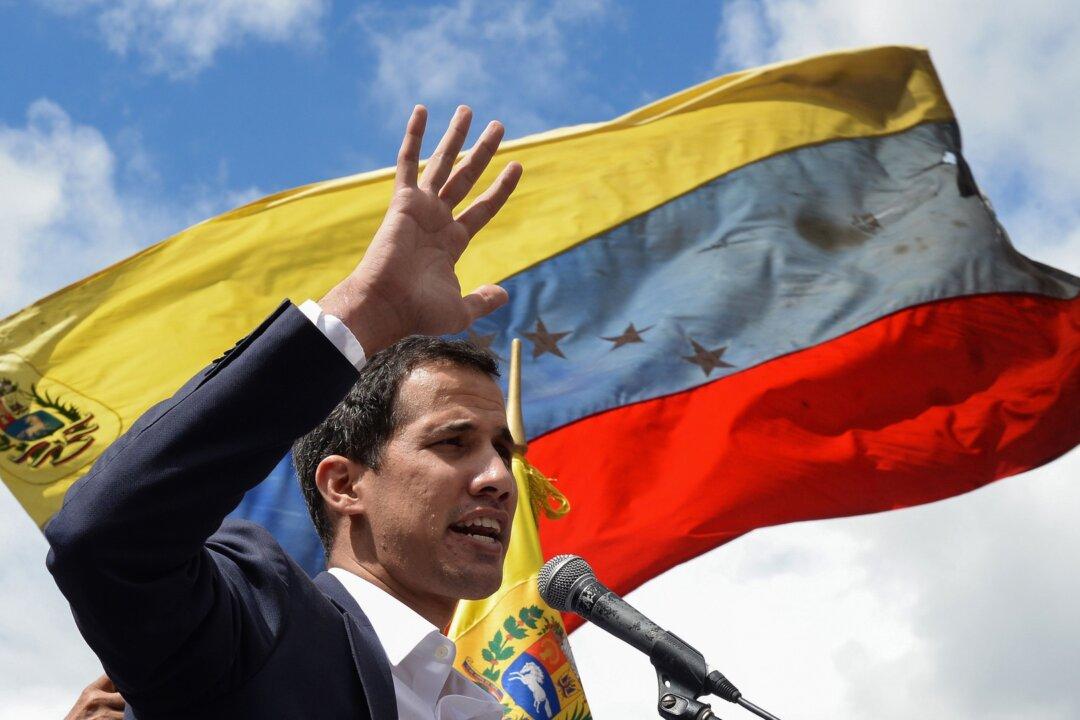Venezuelan opposition legislators on Sunday reelected Juan Guaido as head of the country’s congress in a session held outside the country’s legislative palace, denouncing moves by Socialist Party members to forcibly install their own candidate as illegitimate.
Hours before Guaido’s reelection, the ruling Socialist Party installed rival lawmaker Luis Parra as chief of Venezuela’s National Assembly after troops blocked a group of opposition legislators, including Guaido, from entering parliament.





